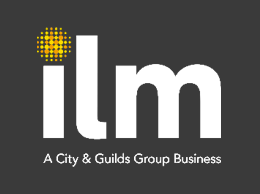In today’s increasingly diverse workplaces, effectively managing equality and diversity is essential for creating an inclusive environment where all employees feel respected, valued, and able to contribute their best work. A robust equality and diversity strategy is not only the right thing to do from an ethical standpoint, but it also makes good business sense. At its core, Managing Equality means promoting a fair workplace where people are treated equally regardless of their protected characteristics such as age, disability, gender reassignment, marriage and civil partnership, pregnancy and maternity, race, religion or belief, sex, and sexual orientation. It involves removing barriers, eliminating discrimination, and providing equal opportunities. Managing Diversity, on the other hand, is about recognising, respecting, and valuing the differences that people bring to the workplace. This includes visible differences such as race, gender, and disability, as well as invisible differences like personality types, thinking styles, and life experiences. A diverse workforce allows organisations to benefit from a wealth of perspectives, ideas, and approaches.
Effectively managing equality and diversity requires a multifaceted approach that permeates all aspects of the employee lifecycle, from recruitment and selection to learning and development, performance management, and succession planning. Some key strategies include:
- Developing and communicating clear equality and diversity policies: These should articulate the organisation’s commitment to creating an equitable and inclusive workplace, as well as outline procedures for addressing issues.
- Providing regular equality and diversity training: All employees, but especially those in leadership roles, should receive training to raise awareness, challenge biases and assumptions, and develop inclusive behaviours.
- Reviewing employment practices: Continuously assess and revise recruitment, promotion, compensation, and other workplace practices to identify and remove potential barriers or discriminatory elements.
- Supporting employee resource groups: These voluntary, employee-led groups can foster a sense of community, provide mentoring opportunities, and give voice to diverse perspectives.
- Promoting inclusive leadership: Leaders play a pivotal role in role-modelling inclusive behaviours, holding others accountable, and embedding equality and diversity into the organisational culture.
- Continuously monitoring and reporting: Gather diversity data and feedback to track progress, identify areas for improvement, and demonstrate accountability.
While challenges may arise when managing a diverse workforce, such as communication barriers or conflicts arising from differing values and perspectives, the benefits significantly outweigh the costs. A workplace that embraces equality and diversity tends to be more innovative, engaged, and better positioned to understand and serve diverse customers and communities. Ultimately, managing equality and diversity is an ongoing process of continuous learning, open dialogue, and a steadfast commitment to creating a fair and inclusive environment where all talent is nurtured, and everyone has an opportunity to thrive.
Futureproof’s Managing Equality & Diversity Workshop can be tailored to incorporate your organisations policies and procedures so why not get in touch with one of our Project Managers by emailing info@futureproof-training.co.uk.






